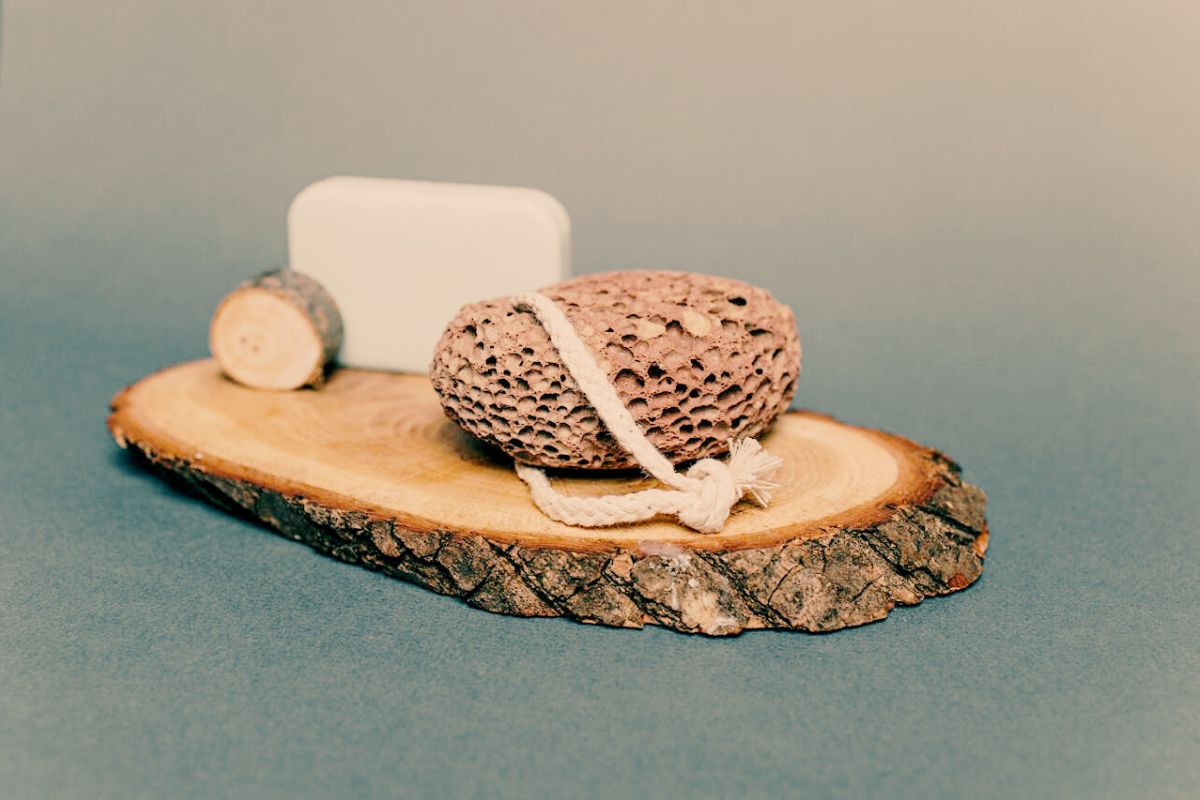Discover the versatile uses and health benefits of coconut oil for beauty and wellness. Explore how it can enhance your daily routine—read more now!
Essential Benefits of Melaleuca Oil Tea Tree Oil for Your Health

Melaleuca oil (tea tree oil) has many health benefits due to its antibacterial and antifungal properties. Read on to learn all the uses and safety tips to get the most out of melaleuca tea tree oil.
Quick Facts
-
Tea tree oil is the ultimate multi-tool of natural remedies; it can tackle acne to dandruff like a boss.
-
This magic oil is a friend to your skin, not your stomach—don’t ingest it, and you won’t be a medical case study.
-
Always patch test before you go full spa mode—nobody likes a surprise skin irritation party!
Melaleuca Oil Tea Tree Oil: Benefits, Uses, and Safety Tips

Tea tree oil is like that one friend who can do it all – a natural remedy with a resume that includes antibacterial, antifungal and anti-inflammatory properties. It’s a multi-purpose oil that treats minor cuts and abrasions by targeting harmful bacteria, making it an excellent natural first-aid option. Research suggests it may also help with acne by reducing skin bacteria, so your breakouts may be a thing of the past. And if dandruff is your arch nemesis, the antifungal properties of tea tree oil can help reduce those pesky flakes by targeting yeast overgrowth on the scalp.
Beyond skincare, tea tree oil is a natural hand sanitiser. It’s derived from the leaves of the Melaleuca alternifolia tree through a steam distillation process, so every drop is packed with medicinal goodness. Due to its many benefits, this essential oil is added to many health-related products like soaps, lotions, and even shampoos.
Like any superhero, tea tree oil has its kryptonite. While generally safe for external use, don’t ingest it, as it can cause serious health issues, and some people may experience skin irritation. So, before slathering it all over, a little caution and patch testing go a long way.
Overview
Tea tree oil is the ultimate multitool of natural remedies. This post will cover its many benefits, uses, and safety tips. Whether you have minor cuts or acne or are looking for a natural sanitiser, tea tree oil has you covered?
Tea tree oil is a versatile addition to your health and beauty arsenal, available in various forms, including pure oil and incorporated into skin products like soaps and lotions. Its broad-spectrum antimicrobial properties make it helpful in combatting many skin issues and infections.
Although tea tree oil is generally safe for external use, ingesting it can cause serious health issues. Knowing the correct usage and potential side effects is key to safely enjoying its benefits. Explore how tea tree oil can enhance your well-being.
What is Melaleuca Oil (Tea Tree Oil)?
Melaleuca oil (also known as tea tree oil) is derived from the leaves of the Australian tea tree through a steam distillation process. The Latin name for this oil is Melaleuca alternifolia. This essential oil is known for its antibacterial properties, which promote skin health and fight bacteria. Tea tree oil is added to many skincare products for its benefits.
The history of Australian tea tree oil goes back centuries, with Aboriginal Australians using it as a traditional medicine for its antiseptic properties. They used it to treat skin issues like insect bites and infections, proving its effectiveness.
In modern times, tea tree oil treats minor cuts and abrasions by targeting harmful bacteria. It’s also a natural remedy for acne as it reduces bacteria on the skin. It’s a natural hand sanitiser and mosquito repellent, showing its many uses.

Composition and Chemistry of Tea Tree Oil
Tea tree oil is composed of terpene hydrocarbons, monoterpenes, sesquiterpenes, and their alcohols. The show's star is terpinen-4-ol, which makes up 30-40% of the oil and is responsible for its antimicrobial properties. This compound makes tea tree oil effective against bacteria, fungi, and viruses.
International standards regulate the quality of tea tree oil, so its composition is consistent. However, light, heat, and moisture can affect the oil's stability. Proper storage is key to maintaining its effectiveness, so keep it in a cool, dark place.
Historical and Modern Uses of Tea Tree Oil
Aboriginal Australians were the first to use tea tree oil for its antiseptic properties. They used crushed leaves to treat skin issues like insect bites and infections, using the natural medicine of the oil. This traditional knowledge is the basis for the modern uses of tea tree oil.
Today, tea tree oil is a solution for many skin issues, including acne, athlete’s foot, and nail fungus. Tea tree oil can be used to treat athlete's foot due to its antifungal properties, offering potential benefits as an alternative treatment option to relieve symptoms associated with this contagious condition. Its uses go beyond skin infections to treat lice and soothe insect bites. From ancient herbal medicine to modern-day staple, tea tree oil is still relevant in health and wellness.

Antimicrobial Properties of Tea Tree Oil
Tea tree oil is known for its broad-spectrum antimicrobial properties. It’s effective against bacteria, fungi, and viruses. This essential oil is a powerhouse with antibacterial, antifungal, and antiviral properties, making it a natural remedy for many infections.
Many studies have proven the oil’s microbicidal properties. Here, we’ll look at its antibacterial, antifungal, and antiviral activities and break down its antimicrobial properties.
Antibacterial Activity
Tea tree oil is effective against methicillin-resistant Staphylococcus aureus (MRSA) with MICs as low as 0.04%. It’s a powerful weapon against antibiotic-resistant bacteria. The topical application of tea tree oil is also antibacterial, which is why it’s used for many skin conditions.
Tea tree oil can also improve oral hygiene when used in mouthwash formulations, often better than commercial mouthwashes for treating bacterial issues. Its antibacterial and anti-inflammatory properties also help alleviate acne symptoms.
Antifungal Activity
Tea tree oil is a natural weapon against fungal infections, specifically nail fungus and athlete’s foot. Tea tree oil can serve as an alternative treatment option for athlete's foot, alongside traditional antifungal medications. Studies have shown it can inhibit fungal growth, which is why it’s a popular remedy for these fungal skin conditions. The oil’s antifungal properties, with MICs against various fungi 0.03-0.5%, are well documented.
Tea tree oil has been found to inhibit the growth of Trichophyton rubrum, the fungus that causes athlete’s foot and nail infections. So, it’s a must-have in your natural health arsenal.
Antiviral Activity
Studies have shown that tea tree oil may be able to combat viruses, including herpes simplex. With concentrations as low as 0.0008%, tea tree oil has been shown to manage recurrent viral infections. So, it’s a natural remedy for those who have herpes simplex.
The oil’s antiviral properties make it suitable for many viral infections, another string to its bow as an essential oil.
Anti-inflammatory and Immune Modulating Effects
Tea tree oil isn’t just about killing microbes; it also has anti-inflammatory properties. Research shows that terpinen-4-ol, the main component of tea tree oil, can inhibit inflammatory pathways and reduce cytokine production involved in inflammatory responses. So, it’s a great tool to reduce inflammation for many skin conditions.
Tea tree oil has been shown to alleviate symptoms of contact dermatitis and rosacea by modulating immune responses. Studies have also shown that it can reduce Demodex mite count and overall skin health. Due to its antibacterial, anti-inflammatory, and antioxidant properties, it’s also good for inflammatory acne lesions, especially papules and pustules.
Also, tea tree oil is better than some commercial treatments for reducing allergic skin rash. So, it’s a natural alternative for those who want to manage skin irritations and inflammatory conditions.

Skin and Wound Healing Benefits of Tea Tree Oil
Tea tree oil is a powerhouse when it comes to skin and wound healing. Thanks to its antimicrobial properties, this essential oil is a natural remedy for treating minor cuts and abrasions, reducing the risk of infection. Studies have shown that tea tree oil can help reduce inflammation and promote the activity of white blood cells, which are crucial for the healing process.
When applied topically, tea tree oil can:
-
Reduce the appearance of scars and promote collagen production
-
Soothe and calm irritated skin, reducing redness and inflammation
-
Prevent the growth of bacteria and fungi, lowering the risk of infection
-
Promote healthy skin cell growth and regeneration
To harness these benefits, dilute tea tree oil with a carrier oil like coconut or olive oil and apply it directly to the affected area. However, avoid using tea tree oil on open wounds or broken skin, as it can cause further irritation. With proper use, tea tree oil can be a valuable addition to your natural first-aid kit.
Hair and Scalp Benefits of Tea Tree Oil
Tea tree oil is a game-changer for hair and scalp health. Thanks to its antifungal and antibacterial properties, this essential oil can tackle dandruff, itchiness, and flakiness like a pro. If you’re dealing with seborrheic dermatitis or just want a healthier scalp, tea tree oil is your new best friend.
When used in shampoos or as a scalp treatment, tea tree oil can:
-
Reduce dandruff and flakiness
-
Soothe itchiness and irritation
-
Control fungal growth and yeast overgrowth
-
Promote healthy hair growth
-
Improve scalp health and reduce inflammation
To reap these benefits, mix a few drops of tea tree oil with a carrier oil like coconut or olive oil. Massage the mixture into your scalp and leave it on for 30 minutes to an hour before shampooing. Your scalp will thank you!
Oral Health Benefits of Tea Tree Oil
Tea tree oil isn’t just for your skin and hair—it’s also a powerhouse for oral health. Its antibacterial properties make it an effective treatment for bad breath, gum inflammation, and even tooth decay. By reducing the growth of bacteria and fungi in the mouth, tea tree oil can help keep your oral hygiene in check.
When used as a mouthwash or toothpaste ingredient, tea tree oil can:
-
Reduce bad breath and gum inflammation
-
Prevent tooth decay and promote healthy teeth and gums
-
Reduce the growth of bacteria and fungi in the mouth
-
Soothe mouth sores and ulcers
-
Promote overall oral health and hygiene
To use tea tree oil for oral health, mix a few drops with water and swish it around your mouth for 30 seconds to a minute before spitting it out. Alternatively, you can add a few drops to your toothpaste or mouthwash. Just remember, don’t swallow it!

Aromatherapy and Stress Relief Benefits of Tea Tree Oil
Tea tree oil isn’t just for your skin; it also shines in the realm of aromatherapy and stress relief. Its calming and soothing properties make it an effective natural remedy for reducing stress and anxiety. When inhaled, tea tree oil can help to:
-
Promote relaxation and reduce feelings of anxiety and stress
-
Improve mood and alleviate symptoms of depression
-
Enhance sleep quality and duration
-
Reduce inflammation and promote overall well-being
To use tea tree oil for aromatherapy, add a few drops to a diffuser or inhale it directly from a cloth or handkerchief. This simple practice can transform your space into a calming sanctuary. Just remember, tea tree oil should not be ingested, as it can be toxic if swallowed. Embrace the soothing power of tea tree oil to create a more relaxed and peaceful environment.
Using Tea Tree Oil for Specific Health Issues
Tea tree oil is a versatile remedy for various health issues. Here’s how you can use it to tackle some common problems:
-
Acne: Thanks to its antibacterial properties, tea tree oil is a great treatment for acne. Apply a few drops to the affected area using a cotton swab.
-
Athlete’s Foot: The antifungal properties of tea tree oil make it effective against athlete’s foot. Apply a few drops to the affected area using a cotton swab.
-
Nail Fungus: Tea tree oil’s antifungal properties also make it a good treatment for nail fungus. Apply a few drops to the affected area using a cotton swab.
-
Allergic Skin Rash: With its anti-inflammatory properties, tea tree oil can help soothe allergic skin rashes. Apply a few drops to the affected area using a cotton swab.
It is important to always dilute tea tree oil with a carrier oil, such as coconut or olive oil, and conduct a patch test before applying it to the skin. This precaution helps you enjoy the benefits of tea tree oil without encountering any unexpected reactions.
Safety and Side Effects of Tea Tree Oil
Tea tree oil is generally safe for topical use but can cause skin irritation and allergic reactions in some individuals. Common skin reactions are dryness, itching, stinging, burning, and redness. Do a patch test before using it extensively.
Do not ingest tea tree oil. It can cause serious health effects and toxic symptoms. Keep it out of children’s reach, and never take it orally. Follow these guidelines, and you can enjoy its benefits without side effects.
Clinical Efficacy and Research Findings
Studies on tea tree oil have shown good results, especially for acne. Tea tree oil can reduce inflammatory lesions like papules and pustules due to its antibacterial, anti-inflammatory, and antioxidant properties. So, it’s a good alternative to commercial acne treatments, especially for those who want natural solutions.
Also, due to their antimicrobial properties, creams and gels with tea tree oil have been found to be good for minor skin infections. These can be part of your daily skincare routine and a natural way to have clear skin.
However, studies use different methodologies, so while the results are promising, conclusions on the overall efficacy and safety of tea tree oil are still pending. Further research and clinical trials will be needed to prove its use in dermatology.
Products with Tea Tree Oil

Tea tree oil is an ingredient in many cosmetic and therapeutic products. From gels and creams to shampoos, soaps and body washes, this essential oil is found in many formulations to address different skin and scalp concerns. Its inclusion in these products is due to its broad-spectrum antimicrobial properties.
These products benefit skin and scalp health and boost the overall effectiveness of the product. Whether you have acne or dandruff or want a natural way to be clean, tea tree oil products can be a great addition to your routine.
Tea Tree Oil Creams and Gels
Tea tree oil creams and gels are suitable for antifungal and antibacterial properties. Topical applications are used to treat acne and minimise scars and skin infections. Soothing effects make it a favourite for localised skin irritations and inflammation.
Both tea tree oil cream and tea tree oil gel can be a great addition to your beauty and health routine, especially in complementary and integrative health. They’re a natural and effective way to manage skin conditions, keeping your skin clear and healthy.
Tea Tree Oil Shampoos and Body Washes
Shampoos with tea tree oil have been shown to reduce dandruff and promote scalp health. The antifungal properties of tea tree oil combat yeast overgrowth on the scalp, which is often the cause of dandruff. Regular use of tea tree oil shampoo can result in a healthier, flake-free scalp.
There are also Tea tree soaps and body washes. These products not only cleanse the skin but also have antimicrobial benefits, so they’re ideal for overall skin health.
Blending with Other Essential Oils
Blending tea tree oil with other essential oils, such as lavender and eucalyptus, can boost its antibacterial and antifungal properties. This blend can create a stronger and more effective natural remedy for skin and scalp concerns.
Lavender oil is calming, and eucalyptus oil is antiseptic, which complements tea tree oil's benefits. Together, they form a powerful combination that can address various skin and fungal concerns.
Product Options and Quality
When it comes to selecting tea tree oil products, quality is key. Look for products that are:
-
100% pure and undiluted
-
Free from additives and chemicals
-
Sourced from reputable suppliers
-
Tested for quality and purity
Here are some popular product options to consider:
-
Tea Tree Oil Cream: A moisturising cream that combines the benefits of tea tree oil with other natural ingredients to soothe and calm irritated skin.
-
Lemon Tea Tree Oil: A blend of tea tree oil and lemon essential oil, which can help promote a sense of clarity and focus.
-
Tea Tree Oil Gel: A clear gel that can be applied directly to the skin to reduce inflammation and promote healing.
-
Tea Tree Oil Shampoo: A shampoo that combines the benefits of tea tree oil with other natural ingredients to promote healthy hair and scalp.
-
Essential Oil Blends: Blends of tea tree oil with other essential oils, such as eucalyptus oil and lavender oil, which can help promote relaxation and reduce stress.
When shopping for tea tree oil products, read the label carefully and look for certifications from reputable organizations, such as the Australian Tea Tree Industry Association. This ensures you’re getting a high-quality product that delivers the full range of benefits tea tree oil has to offer.
Precautions and Interactions
Before using tea tree oil, consult a healthcare provider, especially if you are pregnant or breastfeeding. They can help you determine the best product and dosage for you. There are no known drug interactions with tea tree oil, but it is always better to be safe.
-
Tea tree oil should not be ingested and should be kept away from eczema-affected areas.
-
Tea tree oil should be stored out of reach of children.
-
Using tea tree oil on pets may be unsafe.
-
Aged or improperly stored tea tree oil can cause allergic reactions.
Follow these precautions to enjoy the benefits of tea tree oil without any serious symptoms or allergic reactions.
How to Use Tea Tree Oil Safely

To ensure safe usage of tea tree oil, it’s essential to dilute it with a carrier oil such as coconut oil or almond oil to prevent skin irritation. A common dilution ratio is 1 to 2 drops of tea tree oil with 12 drops of carrier oil. This way, the oil is gentle on your skin but still provides its benefits.
It’s also crucial to perform a patch test before applying tea tree oil more broadly. Apply the diluted tea tree oil to a small skin area and wait 24 hours to check for any adverse reactions. If no irritation occurs, you can use it in larger areas.
For specific uses, like dandruff, mix tea tree oil with carrier oil, apply to the scalp, and leave for 20 minutes before washing out. Consistent use for a few days can show results, but if symptoms worsen, seek medical attention.
Conclusion
Tea tree oil from the Melaleuca alternifolia tree has many benefits, from antibacterial and antifungal properties to anti-inflammatory effects. Its versatility makes it a great addition to many health and beauty products, such as creams, gels, shampoos, and body washes. However, safe use is key to avoid skin irritation and toxicity if ingested.
In summary, tea tree oil is a natural remedy with a long history and modern uses. You can use this essential oil now that you know its benefits, uses, and precautions. So go ahead and try tea tree oil—your skin and scalp might just thank you for it!
FAQs
Can tea tree oil help with acne?
Yes, tea tree oil is like a superhero for your skin, fighting bacteria and inflammation. Don't use it as a substitute for your morning coffee – it won't give you energy!
Is tea tree oil safe for kids?
Yes! Tea tree oil is like that weird uncle at family gatherings—great from afar, but it's best not to get too close to ingesting it. Just use it topically, and keep an eye on the kids!
How do I store tea tree oil to keep it effective?
Store your tea tree oil like a vampire – away from light, heat and moisture! Store it in a cool, dark place to remain as potent as your best one-liners.
Can I apply tea tree oil directly to my skin?
You don't want to turn your skin into a tea party disaster! Always dilute tea tree oil with a carrier oil first and do a patch test unless you like surprises!
Are there any drug interactions with tea tree oil?
Good news! Tea tree oil gets along with your meds – no drug interactions here. But always check with your doctor before using, especially if you're pregnant or nursing.
Et Vous?
Do you use tea tree oil for skincare or around the house? Do you believe in tea tree's natural abilities to cleanse and purify skin and surfaces? Please leave a comment below :)







buy drugs online
_____
Looks like someone already does ;)
Great article!
Excellent article, thank you. I will try some and let you know :)